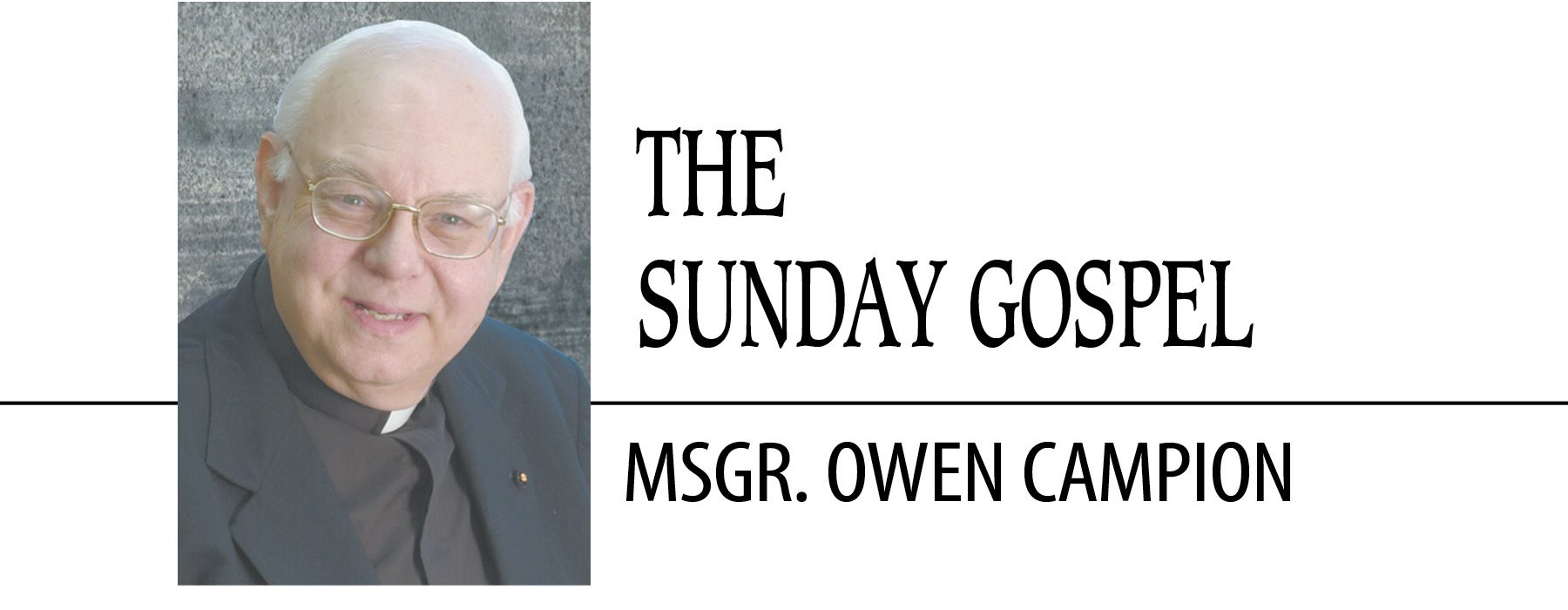August 6, 2022 // Perspective
Our hope is in God’s eternal salvation
Nineteenth Sunday in Ordinary Time
Luke 12:35-40
The Book of Wisdom is the source of the first reading for this weekend. Nighttime was when the Exodus began – the Hebrews’ flight from Egypt where they had been enslaved.
They saw God as their protector, assuring that their escape would succeed. Moses was God’s instrument. Very much a part of the story, therefore, was the people’s recognition of God as their deliverer, even still a keystone of Judaism.
This fundamental belief gives a logical basis for the Jewish belief in God, in ancient times especially a purpose in the wisdom literature in the Bible.
The second reading for this weekend is from the Epistle to the Hebrews, written very much for Jewish converts to Christianity who faced the same difficulties as those experienced by pagan converts in the first generations of the Church.
After the Jews’ rebellion against Rome, quashed so brutally by the Romans in 70 AD, the legal system of the empire was no friendlier to Jews than it was to Christians. Christians faced persecution because they defied laws requiring worship of the Roman gods and goddesses, including the emperor. Jews also rejected the Roman divinities.
This epistle encouraged and challenged Jewish converts to Christianity.
The reading literally sings about the majesty and power of faith, continuing one of the themes in the previous reading. By acknowledging God and by receiving Jesus, the Son of God, believers affirmed the fact that God is and was active through the centuries, in human life. Abraham realized this. God gave Abraham and Abraham’s wife, Sarah, a child. Their prayers were answered. From this child, their son Isaac, descended the Hebrew people.
St. Luke’s Gospel provides the last reading. It is always important to realize that the Gospels were composed not during the Lord’s time on earth, but decades after Jesus lived and preached. (Biblical scholars think that Luke’s Gospel, heavily relying upon Mark’s but using other sources as well, was written around 80 AD, a half-century after Jesus.)
The author of Luke knew very well the stresses facing Christians at the time when the Gospel was composed. He witnessed the ominous persecution and certainly he experienced the struggle between the Gospel and the pagan culture.
So, the words of Jesus chosen by the evangelist and read during this weekend’s Masses are encouraging. They also warn.
The Lord urged disciples to be prepared. Arrest could come at any minute, but the Lord would take care of them. Still, surviving on earth is not the ultimate. Jesus would vindicate believers in the heavenly kingdom. Jesus is the bridegroom. The wedding banquet is the celebration of love and life in heaven.
Reflection
Only two things are certain in life, so they say, namely death and taxes. People spend much time thinking about taxes, filing returns on time, paying what is due, watching withholding statements and resisting political efforts to raise taxes.
By contrast, few people think about death, although death is the fate of every living organism. Death is too frightening to consider. It is easy to turn a blind eye.
These readings are blunt and realistic. Death awaits us all. Aside from final death, we can create for ourselves the living death of hopelessness, loss of purpose and despair.
God wills that we live with peace in our hearts now, and that we live forever. He gave us Moses and Abraham. He gave us Jesus, the very Son of God. Jesus will come, intended to take us to the wedding banquet.
As the Gospel tells us, as the Hebrews remembering deliverance told us, we must prepare ourselves to live with Jesus by being faithful and by loving God above all. God alone is our security and hope. He has proved it.
The best news. Delivered to your inbox.
Subscribe to our mailing list today.






